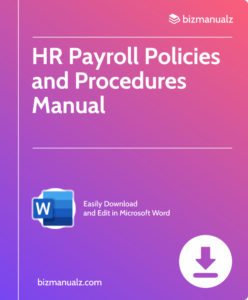How to Account for Unpaid Wages

Accounting for unpaid wages can be tough. It’s important to document any payments owed to workers. To comply with labor laws, businesses should have a system to manage unpaid wages. How to account for unpaid wages.
Accounting for Unpaid Wages
There are certain steps to take:
- Firstly, keep accurate records of employee hours worked and wages earned. This includes regular shifts, overtime, and more. Keeping comprehensive records makes it easy to spot discrepancies or unpaid amounts.
- Reconcile payroll accounts regularly. Compare payroll records to bank statements and other financial documents. Investigate any discrepancies.
- If unpaid wages happen, take action quickly. Contact the employees about the situation. Pay the outstanding amounts or agree on a repayment plan.
Pro Tip: Automated payroll systems decrease human errors and provide real-time tracking of employee compensation.
Understanding Unpaid Wages
To better grasp the concept of unpaid wages, delve into understanding unpaid wages with a focus on the definition of unpaid wages and the factors contributing to them.
Definition of Unpaid Wages
Unpaid wages are salaries not given to an employee for their work. It can be intentional or unintentional. It’s not just the base salary, but additional benefits, overtime, and commissions too. When someone doesn’t get paid, it can have a big impact on their life. Frustration, stress, and the inability to afford things like food, housing, and healthcare are all possible.
Employers need to have policies in place to make sure wages are calculated and paid correctly. Keeping records of work hours and extra compensation can help. Employees should look at their pay stubs to make sure they’re getting what they deserve. If not, they should talk to their employer. If needed, legal advice and labor authorities can help.
Everyone should work together to make sure fair compensation is given. This will create trust and a positive corporate culture.
Factors Contributing to Unpaid Wages
The factors causing unpaid wages can be complex. This causes financial trouble for workers. Knowing these factors is important to tackling the problem. Here are some main points:
- Exploitative Practices: Some employers may do things like not paying wages, wrongly classifying workers, or not giving minimum wage or overtime. These things cause unpaid wages and workers have difficulty paying bills.
- Lack of Awareness: Some workers may not know they are entitled to benefits or higher pay. Employers take advantage of this and don’t pay what they should.
- Economic Challenges: When businesses have money troubles, they can delay paying, or close down, leaving workers without their pay.
- Limited Legal Protections: Laws and penalties for employers not paying wages may be weak. This makes it easier for employers to avoid paying, leading to the issue of unpaid wages.
To address these factors, there needs to be education for workers about their rights, better labor laws and enforcement tools, and fair business practices.
Recently, construction workers were denied pay for several months by a bad contractor. This shows the need for stronger regulations and enforcement of unethical practices.
Importance of Accounting for Unpaid Wages
To ensure accurate financial records and maintain a fair work environment, it is crucial to account for unpaid wages. In this section, we will dive into the importance of accounting for unpaid wages and explore the legal consequences of not doing so. Additionally, we will investigate the impact that this can have on employee morale and retention.
Legal Consequences of Not Accounting for Unpaid Wages
Failing to account for unpaid wages can have severe legal consequences. Employers must accurately track and report salaries to comply with laws. Below is a table showing the potential legal repercussions:
| Legal Consequences | Description |
|---|---|
| Fines | Government can impose hefty fines. These fines will become more severe with repeated non-compliance. |
| Lawsuits | Employees can sue for unpaid wages. This may cause costly settlements, hurt the company’s reputation, and incur legal fees. |
| Audits | Unpaid wages can lead to audits by government agencies. These can disrupt operations and uncover other compliance issues. |
| Administrative Actions | Regulatory bodies may take administrative actions, such as revoking/suspending licenses, due to wage law violations. |
Not accounting for unpaid wages also affects employee morale, productivity, and retention.
For example, a restaurant owner in California didn’t properly report overtime hours. His employees filed a lawsuit, leading to a long legal dispute and damaging the restaurant’s standing.
Impact on Employee Morale and Retention
Employee morale and retention are seriously affected by unpaid wages. This can be detrimental to employees’ wellbeing and commitment to the organization.
- This can lead to frustration and demotivation, resulting in a decrease in productivity and quality of work.
- It can also erode trust between employees and employers, thus harming loyalty and increasing turnover rate.
- Moreover, it can disrupt budgeting efforts, create financial instability, and even lead to personal hardships.
To solve this problem, employers should:
- Establish clear policies for wage payment timelines. Regular communication about payroll schedules is important.
- Prioritize the resolution of wage disputes. Investigate any discrepancies and have open dialogue with employees.
- Invest in technology systems to streamline payroll processes. Automated systems reduce human errors and improve accuracy.
By taking proactive measures, employers can maintain a positive work environment, boost morale, and retain valuable talent. After all, employees are the backbone of any organization!
Steps to Account for Unpaid Wages
To account for unpaid wages in your financial records and statements, follow these steps: Conduct a wage audit, identify and document unpaid wages, calculate the total amount, and adjust your financial records accordingly. Each sub-section will guide you through a specific aspect of the process, providing solutions to ensure accurate accounting of unpaid wages.
Conducting a Wage Audit
Employers must run wage audits to make sure their employees get fair pay. This requires close study of payroll details, work contracts, and overtime regulations.
- Figure Out the Scope: Note down which employees and periods are in the audit.
- Collect Documents: Gather documents such as pay slips, time sheets, and job agreements.
- Analyze Payroll Practices: Examine how wages are worked out, including base pay and any extra payment like bonuses or commissions.
- Check Laws: Ensure the firm is following federal, state, and local wage laws such as minimum wage, overtime pay, and deductions.
- Investigate Discrepancies: Investigate any differences found during the audit and design a strategy to set them right if needed.
- Establish Ongoing Monitoring: Set up systems to regularly review payroll practices to stop future inaccuracies.
Conducting a proper wage audit means employers abide by legal rules and have clear compensation practices. Also, it is key to keep accurate records of the audit, including findings and measures taken based on those findings.
A well-known case involving unpaid wages showed the importance of running wage audits often. In 2015, a major retail company faced a class-action lawsuit for not paying wages to thousands of employees. This reminded organizations to put first fair pay and install strong auditing procedures.
By following these steps carefully, organizations can calmly address any unpaid wages issues while establishing a climate of trust and fairness in their workforce.
Identifying and Documenting Unpaid Wages
Identifying and documenting unpaid wages is a must. Employers can check payroll records, employment contracts, and time logs for discrepancies. Create a record of the unpaid wages, including dates, amounts, and proof like emails or agreements.
See example table:
| Date | Employee Name | Pay Period | Hours Worked | Regular Pay ($) | Overtime Pay ($) | Total Wages ($) |
|---|---|---|---|---|---|---|
| 01/01/2020 | John Smith | 12/16-12/31 | 80 | $1,000 | $200 | $1,200 |
| 01/15/2020 | Jane Doe | 12/16-12/31 | 60 | $750 | $0 | $750 |
| 02/01/2020 | Mark Johnson | 01/01-01/15 | 75 | $900 | $150 | $1,050 |
Also gather testimonies from employees who may have knowledge of unpaid wages. Their accounts can help understand the problem. Employees should report any unpaid wages issues to protect rights and create a fair workplace.
Let us take action to address unpaid wages. Only then can we ensure employees are compensated fairly and on time.
Calculating the Total Amount of Unpaid Wages
To calculate unpaid wages, you must begin by gathering the employee’s work schedule and hours worked. Factor in regular working hours, overtime hours (if applicable), and any other influences on their wages. Once you have determined the total number of hours worked, figure out the hourly rate.
This may differ according to minimum wage laws, employment agreements, or industry-specific standards. If the employee is owed overtime pay, include this in your calculations. Multiply the number of unpaid overtime hours by 1.5 times their usual hourly rate. Consider any additional compensation due, such as holiday pay or bonuses.
This should also be included in unpaid wages calculations. Every situation has unique details, so professional guidance or legal resources are recommended to ensure accurate results. For context, approximately $20 billion in unpaid wages are owed yearly in the U.S. (source: National Employment Law Project).
Adjusting Financial Records and Statements
For readjusting financial records and statements, do these:
- Pick out unpaid wages: Look through payroll records to spot any unpaid wages owed to employees.
- Add up the amount: Tally up the total of unpaid wages for each employee, including overtime, bonuses or commissions.
- Note the liability: Create a liability account in your financial statements to keep track of the unpaid wages.
- Lower the expense on the income statement: Record the unpaid amount as a liability to reduce the expense for employee wages.
- Update the balance sheet: Show the liability for unpaid wages on your balance sheet under current liabilities.
- Compare with bank statements: Check that your bank records agree with the changes made to your financial statements.

- Tell employees: Let affected employees know about any corrections to their wage payments.
Tip: Regularly compare payroll records with financial statements for accurate and current accounting records.
Possible Challenges and Solutions
To account for unpaid wages, address the possible challenges and solutions. Dealing with incomplete or inaccurate records, as well as addressing communication issues with employees, offers a way forward. By navigating these challenges, you can ensure fair and accurate wage compensation for your workforce.
Dealing with Incomplete or Inaccurate Records
Incomplete or inaccurate records can be a huge problem for any organization. It can lead to incorrect information, slow down decision-making, and lower productivity. But, there are ways to handle these issues and make sure records are accurate and complete.
Organizations can use different strategies to manage incomplete records:
- Regular Data Audits: Checking data often to spot any inconsistencies or missing information.
- Data Validation: Put checks in place during data entry to avoid inaccuracies.
- Employee Training: Train staff in the right way of handling records properly.
- Automation: Use automated systems and technology to streamline data collection and processing.
Data audits are key to discovering any issues with existing records. By doing regular checks, organizations can stay ahead of problems and keep data reliable. Validation measures add an extra layer of protection. This includes making certain fields mandatory, setting format rules, and double-checking consistency.
Training employees is essential for teaching them proper data management. By offering training courses, staff learn how to handle records correctly and quickly. Automation can prevent incomplete records. Automated systems for data collection reduce manual errors and keep record-keeping consistent.
Addressing Communication Issues with Employees
Communication is vital for a good work environment. Employers can use various strategies to tackle communication troubles. First, regular team meetings give employees the chance to speak and be heard. Second, using tech platforms like internal messaging helps team members stay in touch. Third, training sessions on communication skills arm employees with the tools they need.
Plus, creating a feedback culture helps address communication issues. Employees can give constructive feedback, which builds trust and collaboration. Social events, like team-building activities, also help colleagues bond and improve communication.
A multinational company faced language barriers between employees from different backgrounds. To solve this, they offered tailored language courses. This improved interdepartmental collaborations and cross-cultural communication.
Account for Unpaid Wages
When it comes to unpaid wages, there are many factors to consider. Firstly, it’s important to calculate the amount owed and record it in the company’s financial statements. This ensures transparency and following accounting rules.
Also, companies should have procedures for addressing unpaid wages. These include keeping records of any payroll issues. Regularly reviewing these records can help identify and fix any errors quickly.
Communication is also essential. Employers should talk to employees about wage payments. This includes informing them of delays or changes and giving updates on their payments. This helps maintain trust and a good workplace atmosphere.
Also, companies must comply with labor laws regarding wages. This includes understanding the minimum wage and overtime rules. Not following these laws can cause legal risks and damage the company’s reputation.
As an example, one company had to pay large fines due to late payments. This made them introduce measures and controls to ensure prompt payment of wages in the future.
Frequently Asked Questions
 1. What are unpaid wages?
1. What are unpaid wages?
Unpaid wages refer to the earnings that an employer owes to an employee but has not paid within the designated pay period. This can include regular wages, overtime, commissions, bonuses, or any other form of agreed-upon compensation.
2. What should I do if my employer fails to pay my wages on time?
If your employer fails to pay your wages on time, it is important to take action. Start by contacting your employer to discuss the issue and inquire about the reason for the delay. If the problem persists, you may need to file a wage claim with your state labor department or consult an employment attorney for further guidance.
3. How can I account for unpaid wages in my financial records?
To account for unpaid wages in your financial records, you should create a liability entry. Debit the wages expense account and credit the unpaid wages liability account. This will show the accurate amount of unpaid wages owed to employees in your financial statements.
4. Can unpaid wages affect my taxes?
Yes, unpaid wages can have tax implications. If you receive your unpaid wages in a later tax year, they may be taxable in that year. It is important to consult with a tax professional or refer to IRS guidelines for specific information regarding how unpaid wages can impact your taxes.
5. How long do I have to claim unpaid wages?
The time limit to claim unpaid wages varies depending on your jurisdiction. In general, it is advisable to file a wage claim as soon as possible after the unpaid wages occur. Many jurisdictions have statutes of limitations, so it is crucial to be aware of the specific time frame within which you can claim unpaid wages.
6. What legal protections exist for employees with unpaid wages?
Employees with unpaid wages are protected under various labor laws. These protections include the right to file wage claims, the right to fair and timely payment, and the right to take legal action against employers who fail to fulfill their wage obligations. It is recommended to consult state and federal labor laws or seek legal advice to understand the specific protections available in your jurisdiction.
















Leave a Reply